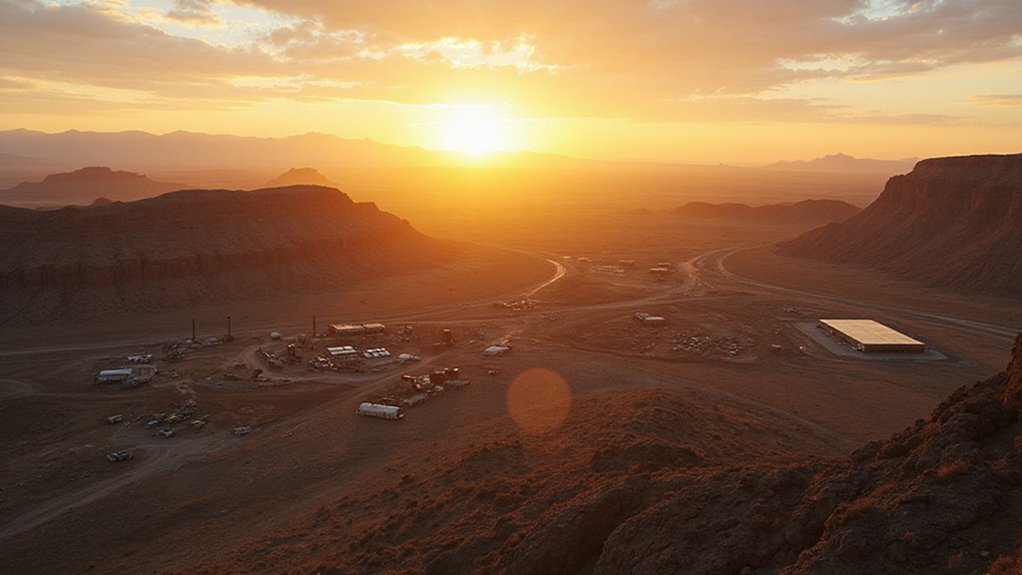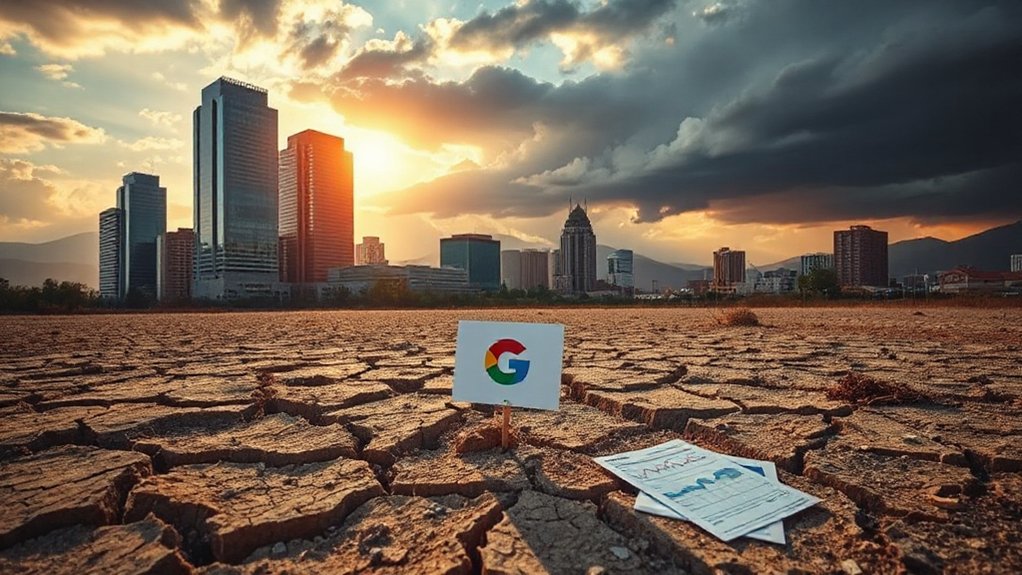Oil, gas, and mining companies just hit the jackpot. The Trump administration axed 18 Bureau of Land Management rules that supposedly slowed drilling permits to a crawl. Wind and solar developers? They lost their sweet discount rates. Rural western towns are banking on more royalty cash for schools and roads. Energy companies get faster approvals while environmentalists watch decades of protections vanish. The real winners become clear once you see who’s celebrating.
The Department of Interior just axed 18 Bureau of Land Management regulations that were supposedly getting in the way of energy development on public lands. The Trump administration calls them outdated and redundant. Critics might have other words.
Here’s the deal. Oil, gas, and mining companies are about to have a much easier time getting permits. Those “excessive, one-sided restrictions” that protected land and slowed approvals? Gone. The government promises faster project approvals and more jobs, especially in rural western communities that depend on extractive industries.
But wait, there’s more. Remember those rate reductions that made renewable energy projects more affordable on public lands? Yeah, those got the boot too. Wind and solar developers just lost their special discount. The administration insists they still support renewables as part of an “all-of-the-above” strategy. They just won’t get preferential treatment anymore.
The money angle is interesting. Traditional energy extraction means more royalties and lease revenues flowing to taxpayers. That’s the pitch, anyway. States and counties hosting these projects stand to rake in bigger checks. Local governments love this stuff—it funds roads, schools, and whatever else they need.
Traditional energy extraction means more royalties flowing to taxpayers—at least that’s the pitch they’re selling.
Congress is pushing the Public Lands Renewable Energy Development Act, which sounds nice enough. It would streamline renewable project siting and share revenues with states while funding conservation programs. Because nothing says “we care about the environment” like drilling more oil to pay for habitat protection. Despite falling costs, renewable projects still face substantial upfront costs that these policy changes may exacerbate.
Industry folks are thrilled. Streamlined processes mean lower costs and faster production. More domestic energy output, more jobs, more economic growth. It’s practically a campaign slogan. Rural communities that have watched their economies shrivel might actually see some relief.
The reality? Public lands are open for business like never before. Traditional energy companies get the red carpet treatment. Renewable developers lose their advantages but aren’t completely shut out. The rescission proposal will undergo public commentary after being published in the Federal Register, giving citizens a chance to weigh in. States and local governments get fatter checks. And taxpayers? They’re told they’ll benefit from “responsible land use” and “maximized energy development potential.”
Whether that’s true depends on your definition of responsible. And who’s doing the maximizing.
References
- https://www.doi.gov/pressreleases/interior-slashes-outdated-energy-regulations-boost-economic-growth-public-lands
- https://www.blm.gov/press-release/interior-slashes-outdated-energy-regulations-boost-economic-growth-public-lands
- https://www.blm.gov/press-release/interior-initiate-action-rescind-blms-intermittent-energy-rule
- https://www.energymonitor.ai/news/us-doi-rescind-rule-public-lands/
- https://gosar.house.gov/news/documentsingle.aspx?DocumentID=8767








